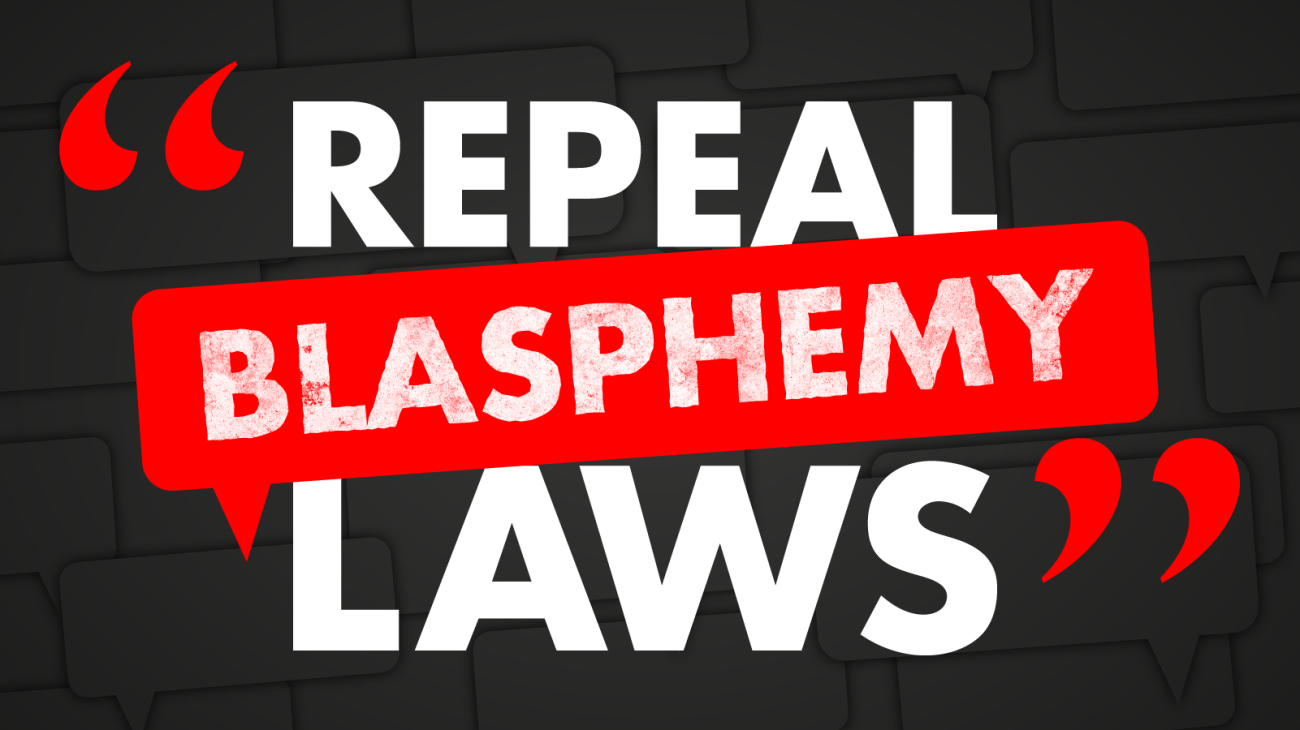NSS: Irish referendum should prompt “celebration of free speech”
Posted: Thu, 21st Jun 2018
The National Secular Society has said the forthcoming referendum on blasphemy in Ireland should "prompt a debate about celebrating free speech as a positive value".
Last week the Irish government confirmed that it would hold a referendum later this year on removing blasphemy as an offence from its constitution. The vote is expected to take place in October.
Article 40 of the Irish constitution says the "publication or utterance of blasphemous, seditious, or indecent matter is an offence which shall be punishable in accordance with law".
Ireland's justice minister Charlie Flanagan said: "In terms of Ireland's international reputation, this is an important step. By removing this provision from our constitution, we can send a strong message to the world that laws against blasphemy do not reflect Irish values and that we do not believe such laws should exist."
The relevant section of Article 40 was written into Ireland's constitution in 1937. In 2009 Ireland also passed the Defamation Act, which banned the "publishing or uttering [of] matter that is grossly abusive or insulting in relation to matters sacred by any religion". Transgressing the law could result in a fine of up to €25,000.
Last year the Irish police investigated actor Stephen Fry under the Defamation Act over an interview he gave in 2015 in which he asked: "Why should I respect a capricious, mean-minded, stupid god who creates a world which is so full of injustice and pain?"
Voters will be asked specifically about blasphemy's place in the constitution. The repeal of Article 40 would not automatically mean the repeal of the relevant section of the Defamation Act, but the justice minister's remarks suggest the government would then move quickly to abolish it.
NSS spokesperson Chris Sloggett said the removal of Ireland's blasphemy laws would be "a welcome acknowledgement that blasphemy will never be a crime and a statement of solidarity with freethinkers around the world".
"We hope this decision prompts similar action in Scotland, which retains laws against blasphemy, and encourages tougher action on countries which use blasphemy laws to deny their citizens the right to freedom of thought and expression.
"We also hope it will prompt a wider debate about celebrating free speech as a positive value, rather than seeing it as something which needs to be grudgingly accommodated and apologised for."
We've campaigned for the repeal of blasphemy laws since our founding in 1866 and we were instrumental in their repeal in England and Wales in 2008.
Earlier this year the Scottish National Party committed to repealing Scotland's blasphemy laws.
Last year a US government report found laws restricting freedom of expression on religious issues in 71 countries, without including Scotland. And in December the 2017 Freedom of Thought Report, from the International Humanist and Ethical Union (IHEU), said free thought on religious issues was in "a pattern of regression on a global scale".
The IHEU report said persecution of the non-religious was increasing and 85 countries – more than four in ten of the world's total – 'severely' discriminated against non-religious individuals. In 30 of these countries, the violations were 'grave'.
Ireland's referendum is likely to be held on the same day as its presidential election and a referendum on changing a constitutional clause that prioritises a woman's domestic role over work. Ministers are reportedly keen to continue instigating social change after last month's vote to repeal the eighth amendment, which effectively banned abortion in almost all circumstances.
While you're here
Our news and opinion content is an important part of our campaigns work. Many articles involve a lot of research by our campaigns team. If you value this output, please consider supporting us today.








